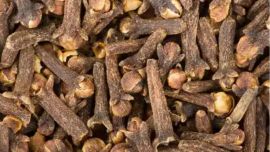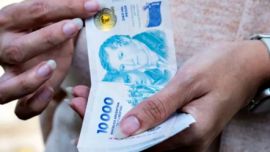President Mauricio Macri admitted on Wednesday that citizens were suffering due to economic turmoil, but he promised that the crisis will be slowly overcome.
"There are a lot of angry and anguished people because it costs more to get to the end of the month. But this is the only way, and the economy is going to improve slowly," the president told the FM Pasión radio station in San Luis province.
Macri described the difficulties he has faced since coming to power in 2015, saying that living standards had "clashed with a reality that Argentina had been living beyond its means, with governments spending more than they had."
At the beginning of his mandate, there were "provinces on their knees, unable to manoeuvre [and] crushed by a central government," he said, recalling the “severe financial problems.”
However, he insisted today that Argentina was in a better position than before he took office. "In the economic sphere, despite the blows, we are better off than in 2015," he said.
He argued that "inflation is already beginning to lower, economic activity will slowly improve and we hope that this will lead to increasingly solid growth."
Inflation hit 48 percent in 2018, the highest in 28 years. Social groups are calling for a food emergency law in the face of falling wages and a recession that saw the economy 2.6 percent last year, according to the IMF.
On Wednesday, in Buenos Aires and other cities across the country, social movements and activists demonstrated under the slogan "against hunger and tarifazos," a reference to increases in public utilities.
Electricity, gas and other utilities – which were previously heavily subsidised under the administrations of Néstor Kirchner (2003-2007) and Cristina Fernández de Kirchner (2007-2015) – have recorded increases of up to 3,000 percent since Macri took office in December 2015, according to the AFP news agency, impacting the purchasing power of the lower and middle classes.
Macri has already announced that he will seek his re-election in this year’s presidential election on October 27.
TIMES/AFP/NA




















Comments